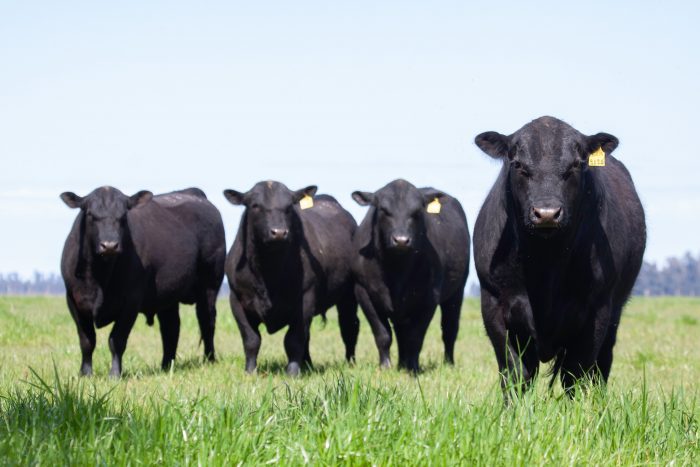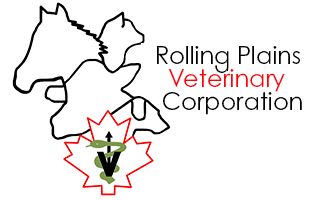How Can I Prevent Diseases in My Farm Animals?
June 25, 2024 10:41 pm Leave your thoughts
Raising farm animals is a rewarding experience. From the morning sounds of contented clucking to the evening hum of livestock winding down for the day, there’s nothing quite like the bustling atmosphere of a healthy farm. However, nothing can damper this idyllic setting quicker than encountering diseases in your livestock.
But here’s the good news: many livestock diseases are preventable. Adopting a proactive approach to animal health can keep your farm animals healthy and thriving.
Understanding Livestock Diseases
Before diving into prevention, it’s essential to understand what you’re up against. Livestock diseases come in various forms, from bacterial and viral infections to parasitic infestations. Common ailments include foot rot, avian influenza, and parasitic worms. These diseases can spread rapidly and cause significant health issues, impacting not only animal welfare but also farm productivity and profitability.
Establish a Routine Health Check System
Establishing a routine health check system is vital to identifying potential problems before they escalate. Regularly examine each animal for signs of illness, such as unusual behavior, changes in appetite, or physical abnormalities like lumps or sores. This practice can help you detect issues early and seek veterinary assistance promptly.
Daily Observations
Keep an eye on your animals’ behavior and overall demeanor daily. Look for signs of discomfort or distress, such as:
- Lethargy or abnormal energy levels
- Changes in eating or drinking habits
- Coughing, sneezing, or nasal discharge
- Lameness or limping
- Swollen or painful areas on the body
- Weekly Physical Checks
Incorporate a more detailed physical examination weekly. Check for:
- Skin lesions, sores, or parasites
- Abnormal feces or urine
- Condition of hooves or claws
- Signs of respiratory distress
Developing a structured observation and examination routine helps ensure even subtle changes in your animals’ health are noticed early.
Diet and Nutrition Management
Just like humans, animals require a balanced diet to maintain optimal health. Proper nutrition strengthens the immune system, making animals less susceptible to diseases.
Feed Quality
Ensure your feed is high-quality and free from contaminants like mold or pests. Always store feed properly to keep it fresh and untainted.
Balanced Diet
Different species and breeds have unique dietary requirements. Work with a nutritionist or your veterinarian to design a diet that meets your animals’ specific needs, including the appropriate balance of proteins, carbohydrates, fats, vitamins, and minerals.
Supplements
In some cases, dietary supplements might be necessary to fill nutritional gaps. Discuss with your veterinarian whether supplements such as vitamins, minerals, or probiotics could benefit your animals.
Ensure Proper Hydration
Hydration is vital for maintaining animal health. Ensure your livestock always have access to clean, fresh water. Regularly check and clean water troughs and containers to prevent contamination. Proper hydration supports digestion, nutrient absorption, and overall well-being, reducing disease susceptibility.
Vaccination Programs
Vaccinations are one of the most effective methods of disease prevention. Immunizing your animals significantly reduces the risk of outbreaks and the spread of infectious diseases.
Species-Specific Vaccinations
Each species has its specific set of recommended vaccinations. Common vaccines for livestock include:
- Cattle: Vaccines for bovine respiratory disease complex (BRDC), Bovine Viral Diarrhea (BVD), and Footrot.
- Poultry: Vaccines for Newcastle disease, Infectious Bronchitis, and Avian Influenza.
- Sheep and Goats: Vaccines for Clostridial diseases, Footrot, and Caseous Lymphadenitis (CL).
- Swine: Vaccines for Porcine Reproductive and Respiratory Syndrome (PRRS), Swine Influenza, and Erysipelas.
Vaccine Schedule
Develop and adhere to a vaccination schedule tailored to your livestock’s needs. Your veterinarian can assist in creating a vaccination plan, ensuring you don’t miss crucial immunization periods, especially for young animals.
Biosecurity Measures
Implementing stringent biosecurity measures is crucial to prevent the introduction and spread of diseases on your farm.
Access Control
Limit access to your farm to minimize the risk of disease introduction. Implement biosecurity protocols such as disinfectant footbaths at entry points and enforce a change in clothing for visitors and farm staff.
Quarantine New Animals
Always quarantine new animals before introducing them to your existing herd or flock. This practice allows you to monitor them for diseases and ensure they are healthy and disease-free before integration.
Clean Equipment
Regularly clean and disinfect all equipment used in animal care, including feeding troughs, water containers, and grooming tools. Proper sanitation reduces the risk of disease transmission.
Parasite Control
Parasites can cause a range of health issues and facilitate the spread of diseases among livestock. Implement regular parasite control measures to keep your animals healthy.
Deworming
Develop a deworming schedule in consultation with your veterinarian. Regularly administer deworming treatments to control internal parasites such as worms, which can impair nutrient absorption and overall health.
External Parasite Control
Use appropriate treatments to control external parasites like ticks, lice, and mites. Regularly inspect animals for signs of infestations and treat them promptly to prevent spread.
Environmental Management
The environment in which your animals live plays a significant role in their overall health. Improper living conditions can lead to increased stress and susceptibility to diseases.
Clean Living Quarters
Maintain clean and dry living quarters for your animals. Regularly clean bedding, remove manure and ensure proper ventilation to prevent the buildup of harmful pathogens.
Space and Grazing Management
Avoid overcrowding to reduce stress and the spread of diseases. Implement rotational grazing to manage pastureland and prevent the accumulation of parasites and pathogens.
Weather Protection
Provide adequate shelter to protect your animals from extreme weather conditions. Ensure they can access shaded areas during hot weather and warm shelters during cold seasons.
Training and Education
Educating yourself and your farm workers about animal health and disease prevention is crucial. Stay updated with the latest information and techniques to manage your livestock’s health effectively.
Attend Workshops and Seminars
Participate in workshops, seminars, and training programs related to livestock health and disease prevention. Knowledge gained from experts can significantly improve your farm management practices.
Collaborate with Veterinarians
Consult with veterinarians regularly to stay informed about potential disease threats and preventive measures. Your veterinarian can provide valuable guidance on vaccinations, nutrition, and overall animal care.
Stress Reduction
Stress weakens the immune system and makes animals more susceptible to diseases. Implement practices to minimize stress levels in your livestock.
Handling Techniques
Use gentle and humane handling techniques to reduce stress during routine procedures such as vaccinations, deworming, and transportation. Avoid loud noises and sudden movements that can startle or frighten animals.
Social Environment
Ensure that animals have a stable social environment. To reduce social stress, group animals appropriately and avoid mixing new animals without a proper introduction.
Emergency Preparedness
Despite all preventive measures, it’s important to be prepared for emergencies. Have a plan in place to address disease outbreaks swiftly and effectively.
Emergency Contact Information
Keep contact information for veterinary services, such as Rolling Plains Veterinary Corporation, readily available. Knowing who to call in case of an emergency ensures prompt, professional assistance.
Isolation Procedures
Designate isolation areas for sick or suspected animals. Promptly isolating affected animals can prevent the spread of infectious diseases to healthy livestock.
Record Keeping
Maintain detailed records of your animals’ health, vaccinations, treatments, and any disease outbreaks. These records are invaluable for managing health programs and identifying trends or recurring issues.
Rolling Plains Veterinary Corporation: Your Trusted Partner
At Rolling Plains Veterinary Corporation, we understand the importance of maintaining a healthy and disease-free farm. Our experienced team of veterinarians is dedicated to providing comprehensive care for all your animals, from pets like dogs and cats to livestock such as cattle and horses.
Why Choose Us?
- Preventive Care: We offer a range of preventive services, including vaccinations and health checks, to keep your animals in optimal health.
- Emergency Services: Our team is equipped to handle emergency situations, providing prompt and professional care when you need it most.
- Expert Guidance: With years of experience and accreditations, we offer expert advice on managing livestock diseases and maintaining a healthy farm.
- Comprehensive Care: Whether it’s routine check-ups or treating emergent conditions, we provide a full spectrum of veterinary services to ensure the well-being of your animals.
Contact Us Today
Taking proactive steps to prevent diseases in your farm animals is essential for maintaining a productive and thriving farm. Implementing routine health checks, proper nutrition, vaccination programs, biosecurity measures, and more can significantly reduce the risk of livestock diseases.
If you need assistance with any aspect of your animals’ health, don’t hesitate to contact us. As your trusted professional veterinary clinic, we are here to provide you with peace of mind about your animals’ health. From preventive care to emergency services, we’ve got you covered.
Categorised in: Cat Care, Cattle Care, Dog Care, Horse Care
This post was written by Dr. Marc Phillipot
